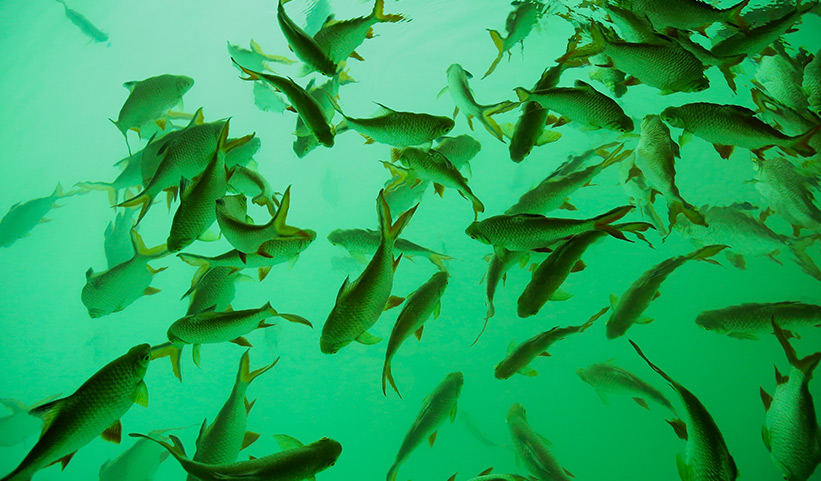A computationally-assisted biorefinery to valorize fish waste.

VALORISH: Green valorisation cascade approach of fish waste and by-products through fermentation towards a zero-waste future.
VALORISH aims to develop a computationally-assisted methodology for the design and implementation of a biorefinery with a cascade approach to valorise waste and by-products from the fishing industry at TRL 5.
The target portfolio of products is fish oil, fish protein hydrolysates, bacteriocins, pigments, vitamins, collagen and calcium-rich powder, targeting food products, additives, supplements and nutraceuticals. The cascade conversion processes varies with the feedstock heterogeneity, comprising pretreatment, oil green extraction, proteolytic fermentation (protein hydrolysis), fermentation with hydrolysates as substrate, and a portfolio of downstream processes.
The proteolytic fermentation is guided by computational biology, using models to search new candidate enzyme-producing bacteria. The fish protein hydrolysates obtained in the fermentation is used, first, as food supplement due to their bioactive properties, and second, as substrate for supporting a second fermentation, to obtain high-value bioproducts, namely bacteriocins and astaxanthin, as food additives, and vitamin B12, as food supplement. Novel genome-scale metabolic models are used to link substrate composition to the desired bioproducts via inspection of metabolic pathways and selecting optimal microorganisms.
In a zerowaste aim, the fermentation side-streams are valorised (bones by extraction and calcination, and residual biomass by anaerobic digestion). All the bioproducts are analysed for chemical, nutritional, bioactive and safety properties to comply with EU regulation, and are included in food/nutraceutical formulations and validated by end users. A mathematical model is developed to simulate the biorefinery and to support the satisfactory scale-up of the core processes as well as the assessment methodologies (technoeconomic, environmental, standardisation). Social impact and acceptance of the products are also assessed.
Our main tasks
- Computational proteolytic bacteria screening.
- Development of genome-scale metabolic models for bioprocessing routes.
- Development of an integrated process model.
- Multidisciplinary design optimisation.
- Conceptual design and engineering.
- Evaluation of the environmental impact.
- Techno-economic evaluation.
- Project coordination.
- Administrative and financial management.
- Risk management.
- Research data management.
Partners
ANFACO | BIOTREND | BLUE SYNERGY | IDENER.AI | KNEIA | NOFIMA | PESCANOVA | RINA CONSULTING | SINTEFStart date – finish date
05 / 2024 - 10 / 2027

Funded by the European Union. Views and opinions expressed are however those of the author(s) only and do not necessarily reflect those of the European Union or the European Research Executive Agency (REA). Neither the European Union nor the granting authority can be held responsible for them.

